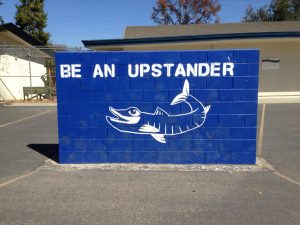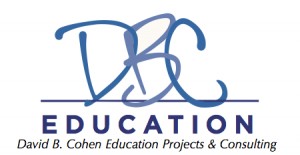Originally posted 8/15/17 on Capturing the Spark at EdWeek Teacher.
I am not a morning person. Even after a full night’s sleep, even on a day with only pleasant activities ahead, waking up is a slow and difficult process for me. Yesterday, on the first day of classes in a new school year, I had a strange sensation when I awoke: I was smiling.
 I hadn’t opened my eyes yet, had no idea what time it was, and hadn’t even consciously registered that it was Monday, and the first day of school. There was no lingering dream to explain the smile, no reason I can think of to be grinning before 6 a.m., but somehow I woke up feeling distinctly the upward curvature of my lips, and it was a curious sensation.
I hadn’t opened my eyes yet, had no idea what time it was, and hadn’t even consciously registered that it was Monday, and the first day of school. There was no lingering dream to explain the smile, no reason I can think of to be grinning before 6 a.m., but somehow I woke up feeling distinctly the upward curvature of my lips, and it was a curious sensation.
Because I hadn’t really been looking forward to school. It’s not even the middle of August, and what little traveling I did this summer ended less than a week ago. I’m barely over the jet lag. I’m teaching new courses and new material that I’m still learning myself. I had to move into a new office space and I’m still getting it organized. Family life is full of changes in routine as well. Could I please just have another couple weeks to get ready?
It wasn’t a relaxing weekend either. I alternated between preparations for school and following the news coming out of Charlottesville, Va. The night before the opening of school, I set aside some last minute planning and attended a vigil/rally instead. After returning home, I was still pondering how these events fit into my teaching. (I almost wrote this blog post as an answer to that question, but I’m not sure I have much to add to the articles, blog posts, and resources below).
So, for many reasons, yesterday should have been a struggle. Why did I wake up with a smile on my face? I think the answer is that, even with the various reasons I thought I wasn’t looking forward to the start of school, part of me knows that I also needed and wanted to return to teaching. Even though there never seems to be enough preparation time, and despite the changes at home and at school, I was looking forward to resuming. While I’m troubled by both the recent and the historical violence of white supremacy in this country, I know that teaching can make a positive difference.
Whatever else the day and the new school year might bring, I now have about 100 new people in my life, young adults with whom I have an opportunity to work toward some vital long-term goals. In the months ahead, my students will not only grow as readers and writers, but also, hopefully, as people and as citizens. We’ll seize opportunities to examine the theories and ideas of great philosophers, to consider various perspectives on the history and literature of the United States, and put new learning to use in a critical examination of their personal and collective present and future.
Several times in the past I’ve written about how essential it is for teachers to embrace our role in addressing and not covering up the controversies, tragedies, and prejudices that affect our students’ lives and shape our society. It’s vital work not only if you find your students concerned or traumatized about events like last weekend’s assaults and killing in Charlottesville, but maybe even moreso if your students seem unconcerned.
To educate yourself further and to consider how to bring these issues into your teaching, I invite you to examine the following.
- EdWeek has compiled some articles and resources here.
- My fellow EdWeek teacher blogger Christina Torres: The False Notion of ‘History’ as Past
- 7 Ways Teachers Can Respond to the Evil of Charlottesville, Starting Now – Xian Franzinger Barrett
